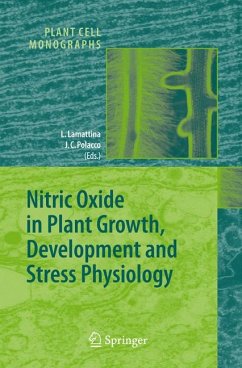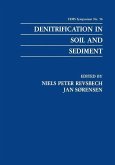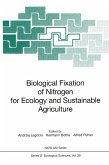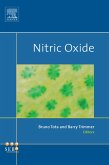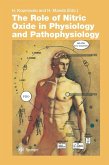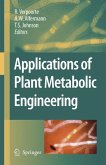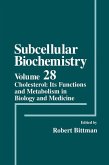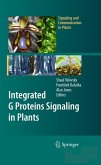The first part of the book is devoted to the description of key features related to NO biochemistry, synthesis and metabolism and the modes of action involved. The second part covers the functionality of NO in three central nodes of the plant life cycle: growth, development and stress physiology. Finally, a detailed analysis of the advantages and disadvantages of the use of fluorometric detection of NO in plant research brings to light information necessary for understanding the limitations of the method.
Dieser Download kann aus rechtlichen Gründen nur mit Rechnungsadresse in A, B, BG, CY, CZ, D, DK, EW, E, FIN, F, GR, HR, H, IRL, I, LT, L, LR, M, NL, PL, P, R, S, SLO, SK ausgeliefert werden.
Hinweis: Dieser Artikel kann nur an eine deutsche Lieferadresse ausgeliefert werden.
"A book that brings together a variety of aspects of NO biology in plants is timely. ... The book is very well presented, with a good use of diagrams ... . All the chapters are very well referenced and this will give any reader a fantastic place to start a more in-depth reading of the literature. ... Final-year undergraduates undertaking research or literature projects on NO will find this book of value, as would any postgraduates working in the area ... ." (John T. Hancock, Annals of Botany, Vol. 101 (3), 2008)

